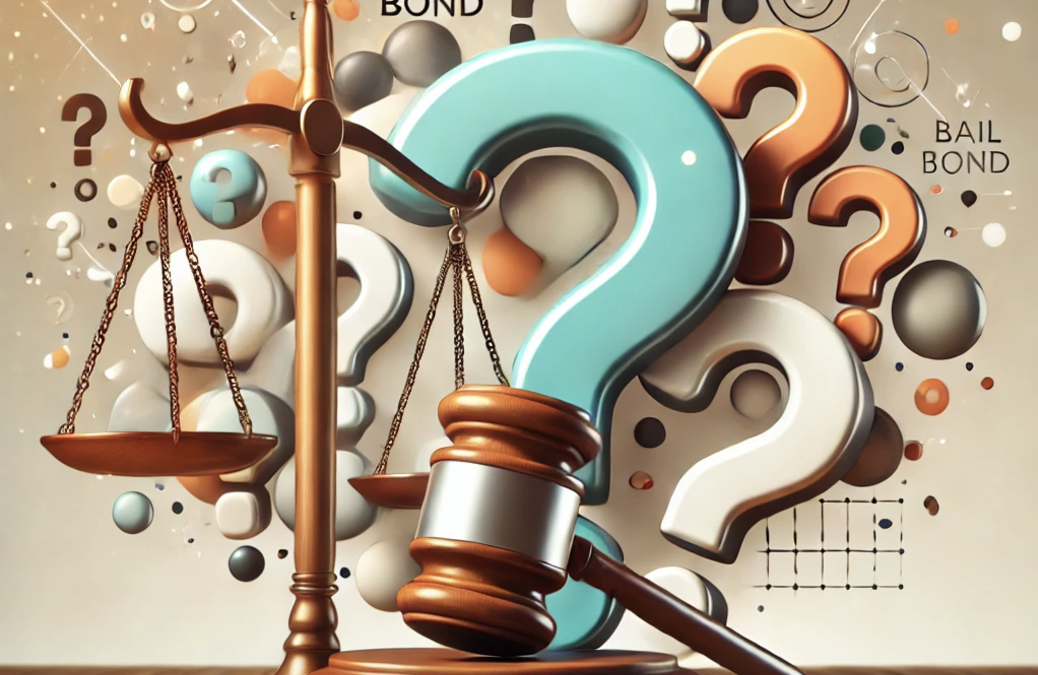1. What is a bail bond?
A bail bond is a contractual agreement between a defendant, a bail bondsman (or bail agent), and the court. It is used to secure a defendant’s release from jail while ensuring their appearance in court. The bail bondsman guarantees payment of the full bail amount to the court if the defendant fails to appear for their trial. For example, if John is arrested for a minor offense and bail is set at $5,000, he may not have the full amount. A bail bondsman could post the bond on his behalf for a fee, typically 10% ($500).
2. What is the cash bail bond procedure?
The cash bail bond procedure begins when a judge sets the bail amount during a hearing. The defendant (or someone on their behalf) must pay the full amount in cash to the court or jail. Once the payment is processed, the defendant is released. For instance, if Lisa’s bail is set at $3,000 for a misdemeanor, her family can pay the $3,000 upfront in cash. After Lisa attends all her court dates, the money is refunded (minus any administrative fees). However, if she skips court, the amount is forfeited.
3. Is a bail bond expensive?
Bail bonds can be costly, as they require a non-refundable premium, typically 10-15% of the bail amount. For example, if Michael’s bail is set at $20,000, the premium would be $2,000 to $3,000. This fee is non-refundable, even if Michael complies with all court requirements. The cost can be burdensome for families, especially for higher bail amounts. However, the alternative—paying the full bail upfront—may be even more financially challenging.
4. What is collateral?
Collateral refers to assets pledged to secure a bail bond. These assets ensure the bail bondsman is protected if the defendant fails to appear in court. For example, Sarah’s family might use their home’s equity as collateral for her $50,000 bail bond. If Sarah doesn’t appear in court, the bail bondsman can seize the property to recover the full bail amount. Other common forms of collateral include vehicles, jewelry, or savings accounts.
5. Are you licensed?
Licensing is crucial for bail bondsmen to operate legally. They must pass exams and meet state-specific requirements. For instance, in California, bail agents need to complete 20 hours of pre-licensing education and pass a state licensing exam. A licensed bondsman ensures compliance with legal and ethical standards. Always verify credentials through your state’s Department of Insurance or similar regulatory body before working with a bail bondsman.
6. What is a bail bondsman?
A bail bondsman is a professional who provides bail bonds to defendants unable to afford full bail. They act as a financial guarantor for the defendant’s court appearances. For example, if David’s bail is set at $10,000, a bail bondsman may post it for a $1,000 fee. The bondsman assumes responsibility for ensuring David appears in court. If David fails to appear, the bondsman may hire a bounty hunter to locate him.
7. What is bail?
Bail is the amount of money or bond set by a judge to ensure a defendant’s appearance at trial. It serves as a financial incentive for the defendant to comply with legal proceedings. For example, if Maria is charged with a DUI and her bail is set at $5,000, she can pay that amount to be released from custody. If Maria attends all her court dates, the bail is refunded (if paid directly to the court).
8. Why use bail bonds?
Bail bonds are helpful for defendants who cannot afford the full bail amount. For instance, if Jason’s bail is $15,000, his family might not have that much cash available. A bail bondsman can post the bond on Jason’s behalf for a smaller premium (e.g., $1,500). This option provides financial relief and speeds up Jason’s release from custody.
9. Are bail bonds refundable?
The premium paid to a bail bondsman is non-refundable, even if the defendant appears in court. For example, if Emily’s bail is set at $8,000 and her family pays a $800 premium to a bondsman, that fee is not returned. However, if the full $8,000 is paid directly to the court, it is refundable upon case resolution, provided Emily attends all court dates.
10. Can a bail bond be revoked?
Yes, a bail bond can be revoked if the defendant violates its terms. For example, if Brian skips court or breaks bail conditions (e.g., contacting a victim), the bail bondsman can revoke the bond. This action may lead to Brian’s re-arrest and forfeiture of the collateral.
11. What are the indemnitor’s responsibilities?
The indemnitor (or co-signer) ensures the defendant complies with bail terms. For example, if Laura co-signs for her brother Mark’s $25,000 bail bond, she must ensure he appears in court. If Mark skips court, Laura may lose collateral (like her car or home) and owe the bondsman the full bail amount.
12. Can bail bonds arrest you?
Bail bondsmen cannot directly arrest someone, but they can hire bounty hunters to apprehend defendants who skip bail. For instance, if Peter fails to appear in court, the bondsman may contract a bounty hunter to locate and return him to custody.
13. Do I get my money back?
If you pay the full bail amount to the court, it is refundable upon case resolution, provided the defendant meets all conditions. For example, if Angela’s family pays $10,000 directly to the court and she attends all hearings, they receive the money back. However, if they paid a premium to a bondsman, that fee is non-refundable.
14. How much is the bond premium?
The premium is typically 10-15% of the total bail amount. For instance, if Tom’s bail is set at $50,000, the premium would be $5,000 to $7,500. This fee is paid to the bondsman for their services and is non-refundable.
15. What do bondsmen accept as collateral?
Collateral can include real estate, vehicles, jewelry, bank accounts, or other valuables. For example, if Rachel’s bail is $100,000, her family might use their home as collateral. The bondsman holds this asset until the case concludes.
16. What is a co-signer?
A co-signer (or indemnitor) is someone who guarantees the defendant’s court compliance. For example, if Mike’s bail is $30,000, his friend Sarah might co-sign the bond. Sarah becomes financially responsible if Mike fails to appear in court.
17. What is an indemnitor or co-signer?
An indemnitor or co-signer assumes responsibility for the defendant’s compliance with bail conditions. For instance, if Paul co-signs for his cousin’s $20,000 bail bond, he risks financial liability and the loss of collateral if his cousin skips court.
18. Where do you write bonds?
Bail bondsmen typically operate within specific jurisdictions. For example, a licensed bondsman in Texas may not provide services in California unless licensed there. Always confirm the bondsman’s operating area.
19. Who is a defendant?
A defendant is the person accused of a crime and facing trial. For instance, if Jessica is arrested for theft, she becomes the defendant in her criminal case. She may need to post bail to secure her release from custody while awaiting trial.



